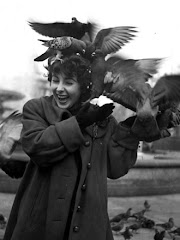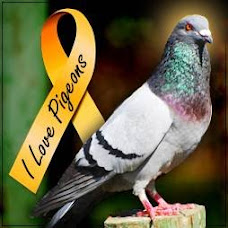Pigeon War - Not Over by Christmas
December 23, 2007
On Monday 17th November 2003 feeding pigeons in London’s Trafalgar Square
became illegal and anyone caught feeding the birds faced a prosecution and a £50 fine. The penalty fine has since been increased to £500.
In 2002, before the feeding ban was imposed, London’s mayor Ken Livingstone hired a pair of Harris Hawks to fly over the Square and scare the pigeons away. This measure cost £44,343 in 2002, their first year, rising to £78,241 in 2003/2004. In 2005/2006 they cost £38,160. Figures show that “Operation Harris Hawk” resulted in the deaths of 121 pigeons and cost tax-payers an average of
£90 per bird and bringing the pigeon population of Trafalgar Square down by 121 could hardly be considered a large step forward in the science of pigeon management.
One wonders why the pigeon population has to be “managed” at all. Yes, they do make a mess but hardly more so than people dropping gum and litter in the Square. Surely the pigeons have been an integral part of Trafalgar Square for a century or more. Tourists expect to see them there. I remember standing in the Square as a small boy in the 1960s, with seed on my arms and being smothered in pigeons. I enjoyed the novel experience and I remember getting “hit” a few times by pigeon poo. My father told me that it was “lucky” and that whenever it happened I should make a wish. I survived the poo. I didn’t catch any nasty diseases and lived on to tell the story forty years later.
Since 2003 the perceived wisdom of banning pigeon-feeding has been adopted by councils throughout the land and people have even been fined for feeding birds in their own back gardens. In 2006 Portsmouth City Council managed to fine
Ruth Shorter £100 for a “littering offence”. She was dropping bird seed for pigeons near her home. She was taken to court and had to pay an additional £250 in costs. The court heard how Mrs Shorter suffered from depression but took “great pleasure” in feeding the pigeons. One wonders how much the NHS is paying to treat her depression now that she is unable to feed the birds.
When the ASBO (Anti-social Behaviour Order) was created we all rubbed our hands together with glee and imagined that at long last something would be done to curb badly behaved yobs. Little did we know that the new powers were to be used against
Bernard Humbleton, a 66-year-old bird lover with terminal cancer and
Graham Branfield who had the temerity to feed birds with left-overs in his own back garden. Oldham Council are considering an ASBO for
Dawn Benson and
Norma Hughes faces eviction if she continues to feed the birds in her front garden.
All over the country from
Trowbridge to
Derby councils are waging war against the humble pigeon.
Why do some people hate pigeons so much?Are we forgetting the valiant pigeons who have served their country in times of war? Should we stop feeding Chelsea Pensioners too? A pigeon called
Gustav was the first to bring back news of D-Day to the UK. He was awarded the “Dickin Medal” along with 31 other pigeons; all birds that carried secret messages during WWII. Their story was recently made into a Hollywood film, “Valiant” staring Ewan MacGregor.
In 2004 the Princess Royal unveiled a
memorial sculpture to the animals that served and died alongside British and allied troops and a batch of pigeons was released as a part of the unveiling ceremony. In the same year a Dicken medal awarded to a pigeon called “
Commando” was auctioned in London.
A loophole in the law meant that until recently pigeons could be fed from the
North side of Trafalgar Square but since this loophole was closed the pigeons have been dying in droves and this week an organisation called the “Pigeon Action Group” held a
candlelight vigil in the Square for 2,500 birds.
Post mortem tests have shown that the birds have been literally starving to death.
According to the BBC News today, Westminster Council’s efforts to ban feeding does not end with the birds. They are now trying to
ban charities from running soup kitchens for homeless people and their typically “Orwellian” justification defies common sense. In a masterful piece of “doublespeak” they claim that it is the soup kitchens themselves which actually keep people on the streets; an interesting-sounding but plainly nonsensical intellectual justification for those minor local bureaucrats who already have warm homes and enough to eat but who would like to “eliminate” homeless people.
My only worry is that this attempt to “eliminate” could see our homeless people eventually suffering the same fate as the pigeons.













